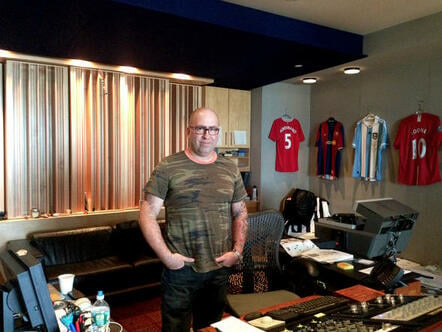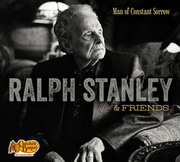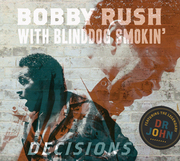New York, NY (Top40 Charts) Ever wonder how your favorite songs are made? Ever wonder what happens between the time it takes your favorite artist to record a song and the time it plays on your radio? The process of making music is a specialized art, and there are a handful of amazing technicians working behind the scenes to help engineer the hits we all love and enjoy.
We recently sat down with esteemed mastering engineer Chris Gehringer of Sterling Sound audio mastering studio to discuss mastering, the last creative step in the hit making process. Gehringer has been a highly regarded force in the mastering world for nearly three decades, having engineered hits for everyone from
Jason Mraz to Icona Pop!
Gehringer's insights are vast and extend beyond the realms of engineering and music. Check out some of the highlights from his conversation with us, and learn more about music mastering.
What is mastering? How important is mastering today versus years ago?
Mastering is the last creative step in the record making process. Mastering years ago was making an [album] transfer from tape to vinyl, making the vinyl master. Records were the big medium back then, and it was a special process cutting the vinyl.
Today mastering is important in a different way...Today albums are put together from various studios, producers, engineers, writers… So a mastering engineer's job now is to combine all those tracks together on an album and make them have some kind of a linear feel to the record.
When did you first realize that you had a passion for mastering music?
When I actually got into mastering and I realized it was about the sound and the way the music hit you, I realized that was what I really wanted. That's what I really appreciate about music. When everything is perfect and [the music] just hits you.
You started off recording bands and working in live sound. How did you get into mastering music from that point of entry?
I went to the
Institute of Audio Research for one year of class... [Afterwards] I started working for a recording studio, Greene St. Recording. And it was hard. I was one assistant to two engineers. I basically worked like 21 hours a day. I got burned out really fast...I found an ad in the paper for a mastering studio looking for an assistant. The place was Trutone Records. I applied and I got the job. That's where everything kind of came together for me.
So, you paid a lot of dues to get where you are today. Can you talk a little bit about the importance of paying dues to achieve success in the music industry?
Any kind of creative business is about constantly paying dues because you learn something new everyday. [The music business] never sits still...This is also a business where you learn on the job. You can go to the best music school in the world and still have to pay dues when you get out. Until you actually work in this business, you don't actually know what it is...When I came up, I was an assistant for six years.
Everybody at Atlantic—all the way into the production department—is really hands-on. Everybody knows every step of the process...
You've worked on recent releases for Atlantic Records such as BLACC HOLLYWOOD (Wiz Khalifa), This Is
Icona Pop (Icona Pop) and many others. What is your method for working across different genres simultaneously?
I cut my teeth on [hip hop recordings]. But I only have one sound and it's big dynamic music. That's what I do whether I'm working with jazz or reggae or pop or rock or whatever… So the genre really doesn't matter to me… I literally just put the music up, turn the knobs and make it sound as best as I can...
What are some of the characteristics about Atlantic Records that make the label a consistent producer of great sound recordings?
Everybody at Atlantic—all the way into the production department—is really hands-on. Everybody knows every step of the process...Craig Kallman [Chairman and CEO of Atlantic Records], I mastered his first record on Big Beat Records. So, I go all the way back with him. So, everybody at Atlantic is really hands-on, and that's something that you don't always see at a major label.
What advice would you give to someone looking to become a professional mastering engineer?
You have to love sound. You really have to be passionate about the way music affects people. It's not like recording or mixing...Mastering is about stepping back and being sure of what your work is.
























